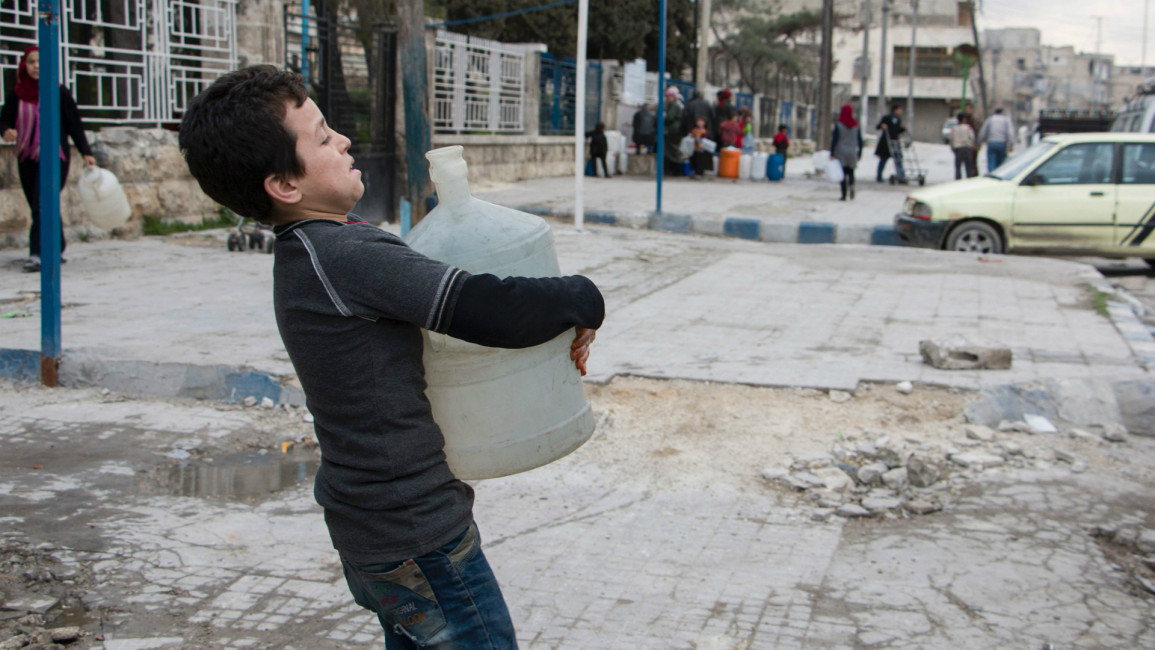Satellite images show Syrians stranded at Jordanian border
International human-rights NGO, Human Rights Watch released the images to raise awareness of a “humanitarian crisis” on Jordanian soil.
Nadim Houry, deputy Middle East director at Human Rights Watch said: “These latest satellite images confirm that the humanitarian crisis at the Rukban encampment has not been resolved, and appears to be getting worse.
“Jordan should immediately allow humanitarian agencies to resume life-saving aid deliveries to alleviate their suffering.”
 |
|
| HRW satellite images of the Rukban border checkpoint |
Jordan suspended almost all aid to the camp, home to approximately 70,000 people, on June 21, 2016, following a suicide car bomb attack by Islamic State [IS].
The attack on a nearby border post left seven soldiers dead and wounded 13 others.
Jordan's King Abdullah II again denied aid groups access to the Rukban border camp in August, citing fears of "extremist elements" among the refugees, the majority of whom having come from areas previously controlled by Islamic State.
King Abdullah II said: "Despite all difficulties, Jordan is doing its utmost to help refugees, but that will under no circumstances be at the expense of the livelihood of Jordanians and their security."
But The New Arab’s correspondent in Jordan, Mohamed Fudailat said that the humanitarian crisis in the Rukban camp existed before Jordan closed the border, with stranded refugees being denied relief services.
“The authorities warned of the existence of IS fighters among the refugees before the border closure, and now insist on the continued closure of the border, following the terrorist attack,” Fudailat added.
Gerry Simpson, senior refugee researcher and advocate at Human Rights Watch, said: “Jordan should not be punishing Syrian children, women, and men fleeing the same atrocities that killed Jordanian soldiers.”
Medical aid charity, Doctors Without Borders, described the situation as a "massive failure of the international community" following increased admissions of children suffering from malnutrition and diarrhoea.
According to official UN statistics as of July 2016, Jordan currently hosts 657,422 Syrian refugees, however the total is closer to 1.4 million.



